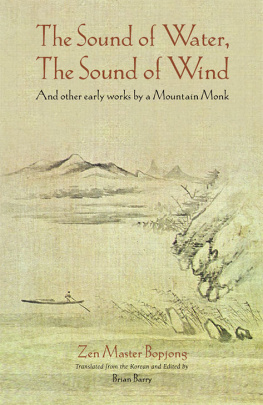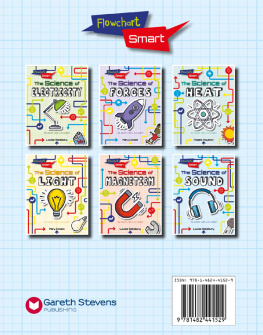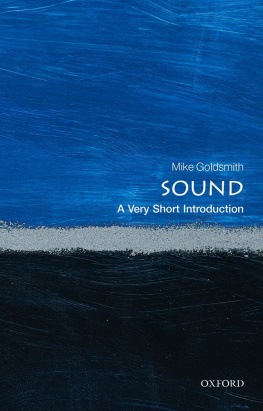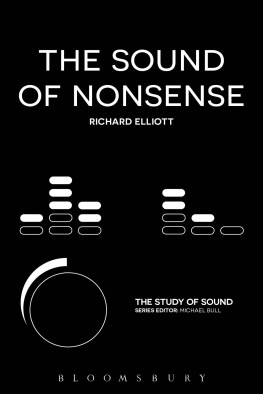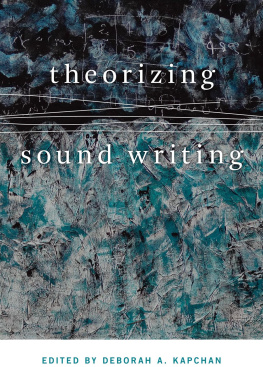Zen Master Bopjong - The Sound of Water, The Sound of Wind
Here you can read online Zen Master Bopjong - The Sound of Water, The Sound of Wind full text of the book (entire story) in english for free. Download pdf and epub, get meaning, cover and reviews about this ebook. year: 2010, publisher: Jain Pub Co, genre: Religion. Description of the work, (preface) as well as reviews are available. Best literature library LitArk.com created for fans of good reading and offers a wide selection of genres:
Romance novel
Science fiction
Adventure
Detective
Science
History
Home and family
Prose
Art
Politics
Computer
Non-fiction
Religion
Business
Children
Humor
Choose a favorite category and find really read worthwhile books. Enjoy immersion in the world of imagination, feel the emotions of the characters or learn something new for yourself, make an fascinating discovery.
- Book:The Sound of Water, The Sound of Wind
- Author:
- Publisher:Jain Pub Co
- Genre:
- Year:2010
- Rating:3 / 5
- Favourites:Add to favourites
- Your mark:
- 60
- 1
- 2
- 3
- 4
- 5
The Sound of Water, The Sound of Wind: summary, description and annotation
We offer to read an annotation, description, summary or preface (depends on what the author of the book "The Sound of Water, The Sound of Wind" wrote himself). If you haven't found the necessary information about the book — write in the comments, we will try to find it.
The Sound of Water, The Sound of Wind — read online for free the complete book (whole text) full work
Below is the text of the book, divided by pages. System saving the place of the last page read, allows you to conveniently read the book "The Sound of Water, The Sound of Wind" online for free, without having to search again every time where you left off. Put a bookmark, and you can go to the page where you finished reading at any time.
Font size:
Interval:
Bookmark:


Jain Publishing Company, Inc. is a diversified publisher of college textbooks and supplements, as well as professional and scholarly references, and books for the general reader. A complete, up-to-date listing of all the books, with cover images, descriptions, review excerpts, specifications and prices is always available on-line at jainpub.com. Our booksPLUS division provides custom publishing and related services in print as well as electronic formats., and our learn24x7 division provides e-learning related products and services.
Copyright 2010 by Master Bopjong. All rights reserved. No part of this book may be reproduced, stored in a retrieval system, or transmitted, in any form or by any means, electronic, mechanical, photocopying, recording or otherwise, without the written permission of the publisher except for brief passages quoted in a review.
Acknowledgement is made to Korea Literature Translation Institute (LTI Korea) for financial assistance in the production of this book.
ISBN 978-0-89581-825-6
Printed in the United States of America
CONTENTS
I NTRODUCTION BY THE T RANSLATOR
In addition to being Korean Buddhisms most prolific modern essayist, Zen (Korean: Seon) Master Bopjong is one of Koreas most outstanding, respected, and popular writers. For decades his books have reached the best-seller list, staying there for months at a time. One major reason is that Master Bopjong has a deep, abiding love for his heritage and for expressing his native language. In addition, his ability to express the purity of Korean sentiment makes him beloved by a full spectrum of the populace. He has also won the respect of the general public by leading an exemplary monastic life free from the fetters and confinements of materialism.
Master Bopjong is much more than a writer. He is also an educator and a spiritual guide. Through his countless writings since the 1960s, he has taught the public much about Buddhist thought, teachings, and morality. Simultaneously he has provided numerous insights into monastic life and how to make progress along the Buddhist path. In the process, he has also given value and direction to countless people of all ages.
Although Chan was first introduced from China to Korea during the Unified Silla kingdom (668-937CE), it did not take firm root until the ensuing Goryeo dynasty (918-1392). Goryeo gave birth to a number of highly important masters who stand today as pillars of Korean Seon. During the following Joseon dynasty (1392-1910), Buddhism was officially repressed in favor of Confucianism, and temples were driven from the cities to the countryside. This proved to be fortuitous for preserving Koreas outstanding Seon traditions in mountain temple environments, and they remain today as the backbone of Korean Buddhism. The ancient Chinese Chan traditions have been preserved, molded into Korean form, and transmitted to a degree unmatched in other countries. It is from this great tradition that Master Bopjong expresses himself.
Master Bopjong entered monastic life on Koreas southeast coast in 1955, shortly after the end of the Korean War. As is tradition, he spent his early years training in many Seon meditation temples. Eventually he moved to Bongeunsa Temple in southern Seoul, which was still very much countryside at the time, but a countryside that was about to be dramatically transformed beyond recognition. After he spent a few years there, the rapidly sprawling city began encroaching on the area, and the distant mountains beckoned him back. He retreated to a hermitage, Buril-am, near Songgwangsa Temple, Koreas third Jewel Temple representing the Sangha (Buddhist community), in Koreas southwest. Songgwangsa is historically renowned as Koreas most eminent meditation temple, having produced a series of major National masters during the Goryeo dynasty. After several years at Buril-am, however, Master Bopjong moved on again, this time because, due to his growing reputation, people, not the city, were encroaching on him and his practice.
Increased fame and recognition had become burdensome to a spirit searching for clarity and simplicity, so Master Bopjong foraged deeper into the mountains where he could remain aloof from the world of din and dust, immerse himself in his search, and continue to write of his insights and experiences. The title of his first book, in 1976, Musoyu (Possessionless), has enduringly typified his quest to live a pure, uncontaminated life of simplicity. This approach to life became the fuel for his future works and for his reputation as a true practitioner. He continues to live, practice, and write in an undisclosed location deep in the towering mountains of Gangwon Province far to the east of Seoul.
Through his writings, Master Bopjong stresses a number of themes he considers conducive to a happy existence. Possessionless is one of his favorite expressions but not always one to take literally. While in absolute terms we are all possessionless when we come into this world and when we leave it as well, he also uses the term to express an approach to life in which people possess and use only what is necessaryfrugality. If one of anything is all that one really needs, even a ballpoint pen, then theres no need for multiples. Another of his favorite expressions in later works is chongbin, the equivalent of honorable poverty or, more figuratively, decent simplicitya clean, no-frills existence. In addition, nonattachment to what we do have is another important meaning of possessionless. Master Bopjong summarizes in a quote from a later book: The secret to happiness is not to be found in how much we have of what we need, but in how free we are from what we dont need.
Additionally, through these works, you may come to appreciate the importance that Master Bopjong gives to both microscopic and macroscopic mindfulness. Rather than writing about koans (Korean: hwadu), he teaches the importance of steadfast observation and total awareness of oneself and of ones surroundings as essential to the process of cleansing the heart. Zens beginners mind, empathy and compassion for all forms of life, freedom from confining attachments, and the wisdom of blossoming anew everyday are additional Buddhist themes that we can easily find throughout Master Bopjongs writings. Additionally, even in many of his early works, he demonstrated a great concern, through his Buddhist training, for the environment at a time when Korea was rushing on with industrialization, a time when concern for the environment was not only unheard-of but even unthinkable.
While many of Master Bopjongs essay collections include rather sharp observations of Korean social and political phenomena over the decades, I have chosen to limit the selection here to more universal themes that should appeal to a much broader audience. The works in this collection are from five of Master Bopjongs early publications: Musoyu (Possessionless), 1976; Seo inneun saramdeul (People Standing Everywhere), 1978; Yeonghon ui moeum (From the Soul), 1983; Sanbang handam (Leisurely Chats in the Mountains), 1983; and Mulsori baramsori (The Sound of Water, The Sound of Wind), 1986. After much consideration, I have kept the articles in chronological order rather than categorizing them by theme. By doing so, I hope to provide the reader with the added interest of watching Master Bopjongs mentality, practice, and depth of perception develop over the early decades.
Id like to ask readers to take their time with this collection. The essays are simple and expressive, but there is plenty to munch on hidden within each one. So you may find the book much more enjoyable and meaningful by reading only a limited number of essays at a time, and perhaps even rereading each in a day or two, and perhaps again in the future. Also, you may find the contents more enjoyable by ruminating here and there and reading, rather than in order, each essay as it strikes your fancy. Let your intuition guide you. It is in this way, too, that you may more easily catch the overriding flavor of Master Bopjongs contributions to Korean and Seon literature and thought. And I hope that, like the traditional and magical Korean
Next pageFont size:
Interval:
Bookmark:
Similar books «The Sound of Water, The Sound of Wind»
Look at similar books to The Sound of Water, The Sound of Wind. We have selected literature similar in name and meaning in the hope of providing readers with more options to find new, interesting, not yet read works.
Discussion, reviews of the book The Sound of Water, The Sound of Wind and just readers' own opinions. Leave your comments, write what you think about the work, its meaning or the main characters. Specify what exactly you liked and what you didn't like, and why you think so.

